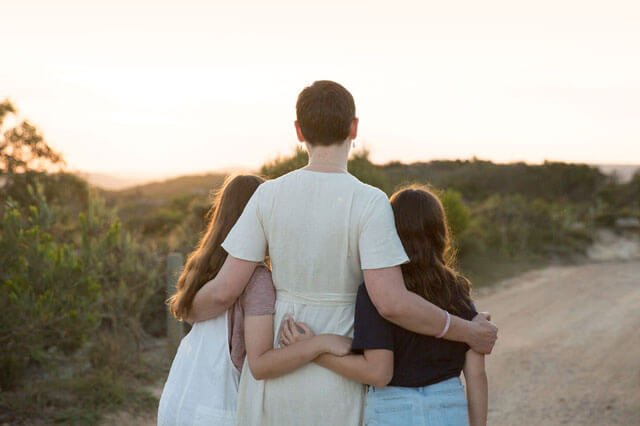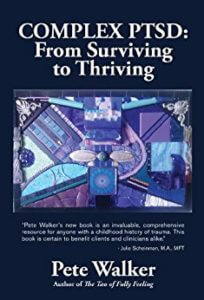It takes courage and commitment to heal from trauma.
And because relationship is often the source of trauma and heartache, it’s also the key to healing.
So often we’re told that before we can heal we need to learn to be alone. And while it’s true that solitude opens the door to self-discovery and helps us tune in to what we need, we can’t heal ourselves alone.
In fact, research shows that genuine, attached relationships not only make you smile more, they harmonise your immune system and help keep anxiety and depression at bay.
The truth is, whether you’re single, dating or married with children – safe, healthy connections matter. But let’s face it, relationships – all of them – can be tricky, especially when you’re healing.
That’s why we’ve put together some ideas on attachment and relationships to help you use connection to heal.
1. Relationships shape who we are and how we act
We’re social beings us humans. From the moment we’re born, we crave closeness.
How this yearning for connection was met in our early years informs how we create relationships as we get older, and how we deal with life’s inevitable curve balls and setbacks.
Attachment theory calls this your attachment style. Basically it says that if you had a secure bond with our parents or care givers, you’re more likely to know an inner sense of wellbeing because you felt seen, soothed and safe in your formative years
When we feel safe and protected, we seek similar secure connections with our friends, partners, colleagues and teachers later in life. This secure attachment style means we build relationships based on the beliefs:
“I am lovable and I am worthy.”
But if that secure, safe attachment was missing as a child, if we weren’t held in safety and consistency, we can lose connection to our core, miss red flags in relationships and attach in ways that echo our earliest, sometimes traumatic, connections.
Having absent, neglectful or inconsistent parents or caregivers can lead to ambivalent, avoidant or disorganised attachment styles later in life. But it doesn’t have to be that way.
Feeling triggered in relationship could be a sign that you’re re-creating patterns from your childhood. It’s pretty normal – you’re not alone. Reaching out to a trauma-informed therapist can help you get perspective on your past, shed some light on your attachment style and help transform your current relationships so that love can grow.
2. Some relationships are better for us than others
We’re going to cut to the chase – positive relationships don’t add to your stress. They don’t make you sick or anxious either.
Yes, relationships take work, patience and commitment, but the positive ones are good for your heart, as well as your mental and physical health.
Formed in trust, kindness and compassion, they’re a space where you can have honest conversations and truly feel heard.
What we love about positive relationships is that they are mutually beneficial. No-one is keeping score, and you both take turns in giving and receiving, so everyone gets the warm fuzzies they need.
When conflict arises, because it will, people in a positive relationship know how to fight right – with respect, empathy and curiosity. You know what’s worth ‘fighting’ for and respect each other’s opinions, because feeling emotionally and physically safe fosters successful, healthy connections.
If you’re needing some more positivity in your relationships, knowing your boundaries and how to respectfully put them in place is a good starting point. The right therapist can help you learn new skills to build happy and connected relationships that are good for you, and to deepen the relationships you already have.
3. Support systems are vital to our wellbeing
Once you’ve identified the positive connections in your life. It’s time to add to them.
We’re big advocates of the old saying – shared joy is double joy, shared sorrow is half sorrow. The more positive relationships you have, the greater your social support system for the good times and the tough times.
Having a network of supportive relationships can be a source of wellbeing, health and happiness. It helps reduce stress, builds resilience and reminds you that you matter. Always. No exceptions.
Your support system might include family, friends, neighbours, mentors, teachers, allied health professionals, counsellors or psychologists. They’re people you can call on to give you a boost when you need it.
And the best part, your social support system is your choice. You get to choose who you want to be with you on your journey through healing and life – because you trust them and feel safe with them.
4. Therapeutic relationships can help you heal
Seeing a professional when you’re feeling stuck or overwhelmed is a sure fire way to help you move through traumatic experiences.
The client-therapist relationship is a powerful connection that cultivates deep and lasting change for people ready to thrive. In fact, some studies have called the therapeutic relationship the most important factor in healing.
And, as clinically trained, trauma-informed therapists, we wholeheartedly agree. We’ve seen it action many times over the years. It’s why connection sits at the heart of what we do here at Mindful Synergi .
The way we see it, therapeutic relationships support your return to wholeness. But just like any other connection, a good therapeutic relationship is a two-way street. For it to be successful, you need to do the emotional work too. So while you’re therapist does the external facilitation – safely guiding you through thoughts, memories and unconscious patterns – you’ll need to show up and look inside for the answers only you have.
We know that opening up can be scary at first, but a therapist is there to respond to your inner experience so you can flourish – much like an attentive care giver in your early years.
Therapists use tools like counselling and psychotherapy to help you make sense of your life story, experiment with new ways of connecting with others, and practice voicing your needs in a safe and stable space. Experiencing a safe relationship (and in time what is called earned security) this gives your brain the chance to safely reflect and adjust its response to your life experiences, so you can find your way home.
There are many types of therapeutic relationships. And finding the right one for you is important. Our mental health professionals guide breaks down the differences between psychiatrists, psychologists, psychotherapists and counsellors to make your search for support easier.
Feeling held and understood by a caring, compassionate human is where true healing happens.
Healing Connections foster the most important relationship of all: connection to yourself – your mind, your body, your spirit. If you’d like to experience them at Mindful Synergi, connect with us
Like a good read? Our top pick for relationships and trauma
Surviving to Thriving – by Pete Walker
We think everyone needs this down-to-earth, self-help guide on their night stand. If you’ve ever felt lonely, disconnected, unwanted or disliked this is your map to unwavering self-compassion, kindness and healing.

